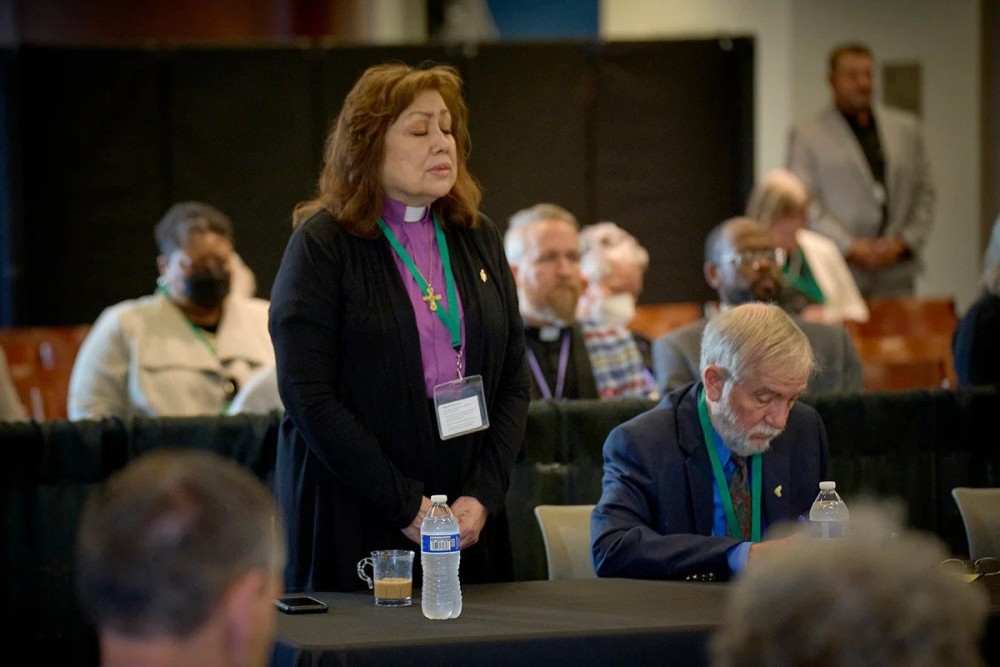Church court finds UMC bishop not guilty in historic trial

Bishop Minerva G. Carcaño stands as the presiding officer reads the jury verdict on September 22. (Photo by Paul Jeffrey, United Methodist News)
A United Methodist church court found Bishop Minerva G. Carcaño—the denomination’s first Latina bishop—not guilty of four charges.
Carcaño, who has served as bishop of the California-Nevada Conference since 2016, stood trial before a jury of 13 racially diverse clergy members from the North Central Jurisdiction. The trial, which began September 19, took place in Glenview, Illinois, a Chicago suburb.
The bishop faced accusations under church law of disobedience to the order and discipline of the church, undermining the ministry of another clergy person, harassment, and fiscal malfeasance.





